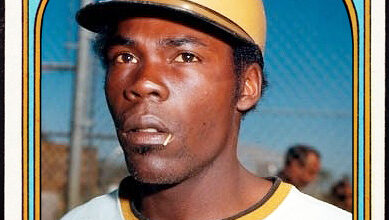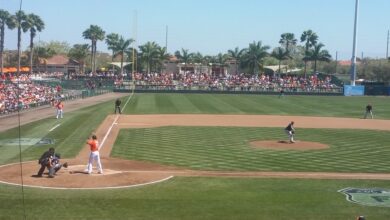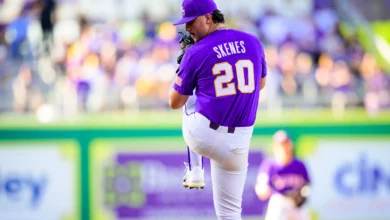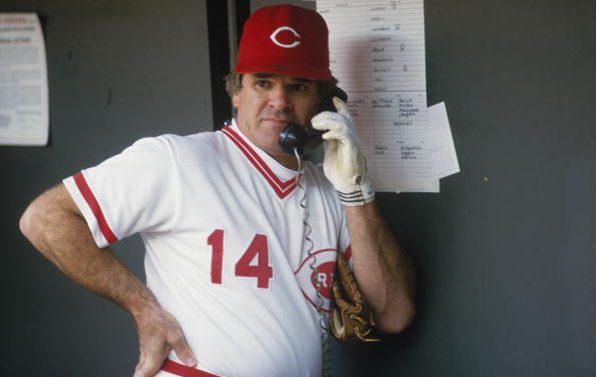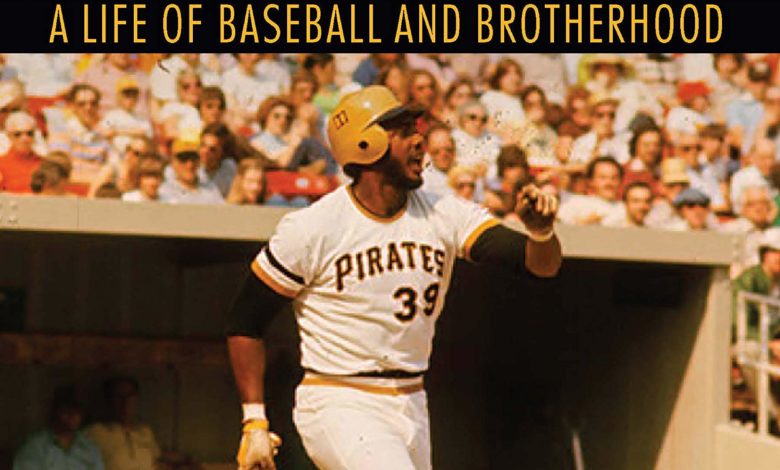
Dave Parker had a 19-year career in Major League Baseball, 11 of which were spent on the Pittsburgh Pirates. He finished with a lifetime slash line of .290/.339/.471 with 339 homers and 1,493 RBIs. There’s some sentiment in favor of his election to the Hall of Fame. To me, he’s in that second tier that falls just short, but then again, I’d be a tough voter. That’s another subject for another day.
Without question, however, he was the best player in baseball during the five-year period 1975-79 while a Pirate. That period included two batting titles, a National League MVP award, three Gold Gloves, an All-Star Game MVP award and a World Series ring. Unfortunately, his relationship with the Pittsburgh fans could best be described as love/hate. Economic times were hard in Pittsburgh. The people couldn’t relate to flashy and outspoken Parker, with his diamond earrings and million-dollar annual salary. Whatever anybody thought of him, nobody who was paying attention could deny Parker played the game hard.
Can’t get no satisfaction
At the start, I note that I’ve read more than my share of baseball books. In recent years, I favor the ones written by professional writers. As for those written by athletes, sometimes I find a good one like Hank Aaron‘s I Had a Hammer. Generally, too many don’t satisfy. Some strike me as money grabs without any significant participation from the subjects. Take Sammy Sosa‘s autobiography, Sosa, published after the great home run record chase of 1998. The tales of that season lacked an insider’s view and read like a cold recitation of game facts as though written by a reporter — and maybe it was. Darryl Strawberry seemed unaware of what was in his first book, Darryl! David Wells denied stories from his book, Perfect I’m Not, not long after its publication.
Gimme some truth
This brings us to Cobra: A Life of Baseball and Brotherhood, written by Parker and co-author Dave Jordan. Like his approach to the game, Parker wasn’t going to put less than 100% effort into his book. He wasn’t going to leave the game descriptions to Jordan. You can bet Parker is aware of everything in his book and won’t deny any of it. Jordan does a great job of organizing Parker’s stories without losing Parker’s voice, cussing and bad grammar and all.
Like the man himself, the book is big and workmanlike. Parker describes key games and events in painstaking detail. According to the acknowledgments, Parker personally spoke to over four dozen former teammates and acquaintances and researched newspaper archives to get his stories straight. It’s a whopping 447 pages. The first 376 pages cover the story up to the point where he leaves the Pirates. The next 50 cover his time with the Cincinnati Reds. The remainder quickly dispenses with subsequent events of Parker’s life, including his present battle with Parkinson’s.
This is not a children’s book or one you can suggest for your church’s book club. If it were a movie, it would be rated PG-13. The language is rough and there are references to dalliances with women. Parker takes you behind the scenes into clubhouses, baseball fields, front offices and smoky night spots. The latter includes the Blue Lantern Bar in Bradenton, Florida, where the Pirates train, and Heaven in downtown Pittsburgh, where cocaine was prevalent in the VIP section. The foul lines aren’t the only white lines mentioned.
Stories he could tell
There is plenty of good inside stuff on a variety of topics: the minor leagues, the 1979 World Series, contract negotiations, trade discussions, the 1985 cocaine trials and the Pirates’ lawsuit to get out of Parker’s deferred payments. There are some surprising things I didn’t know. One was the violent spring training altercation between Larry Demery and Ed Kirkpatrick in 1977. Perhaps that’s why, despite being useful pieces, neither was a Pirate in 1978. Another was Parker’s rejection of a trade to the Texas Rangers that would have returned Al Oliver to Pittsburgh. I knew about the Eric Davis/Ray Knight brawl in 1986, while Parker was a Red. I didn’t know Parker followed the Mets’ bus to their hotel, hoping to catch Knight and settle the score. We learn about the jealous woman who destroyed Parker’s belongings and details of Dock Ellis‘s famous clubhouse rant that eventually got him traded.
Baseball brothers
There are vivid portrayals of Parker’s teammates over the years, including:
- High school friend Bill Flowers, the speedy outfielder never given a fair chance.
- Charles “Charlie Boo” Howard, a long-time career minor leaguer despite putting up strong, consistent numbers year after year.
- Minor league teammate and pool hustler Ron “Satch” Mitchell.
- Drinking buddies Ellis, Bob Moose and “Little Brother” Demery.
- Quiet leader Willie Stargell, who, despite a close relationship with Parker, didn’t run with him after hours.
- Phil Garner, the favorite target of Parker’s barbs.
- Kool-smoking running mate and barstool philosopher John Milner.
- Eddie Solomon, too crazy for even the cocaine crowd.
- Davis, Barry Larkin and Kal Daniels, the young Reds mentored by Parker.
- Reds player/manager Pete Rose, who asked Parker to serve as his de facto assistant manager.
Parker played in a different era. Players smoked cigarettes and didn’t train as hard or pay attention to nutrition as do today’s players. But the bonds between teammates seemed stronger.
Toward the end of the book, Parker says he needs to write a second book about his time with the Oakland A’s. I can’t wait.


